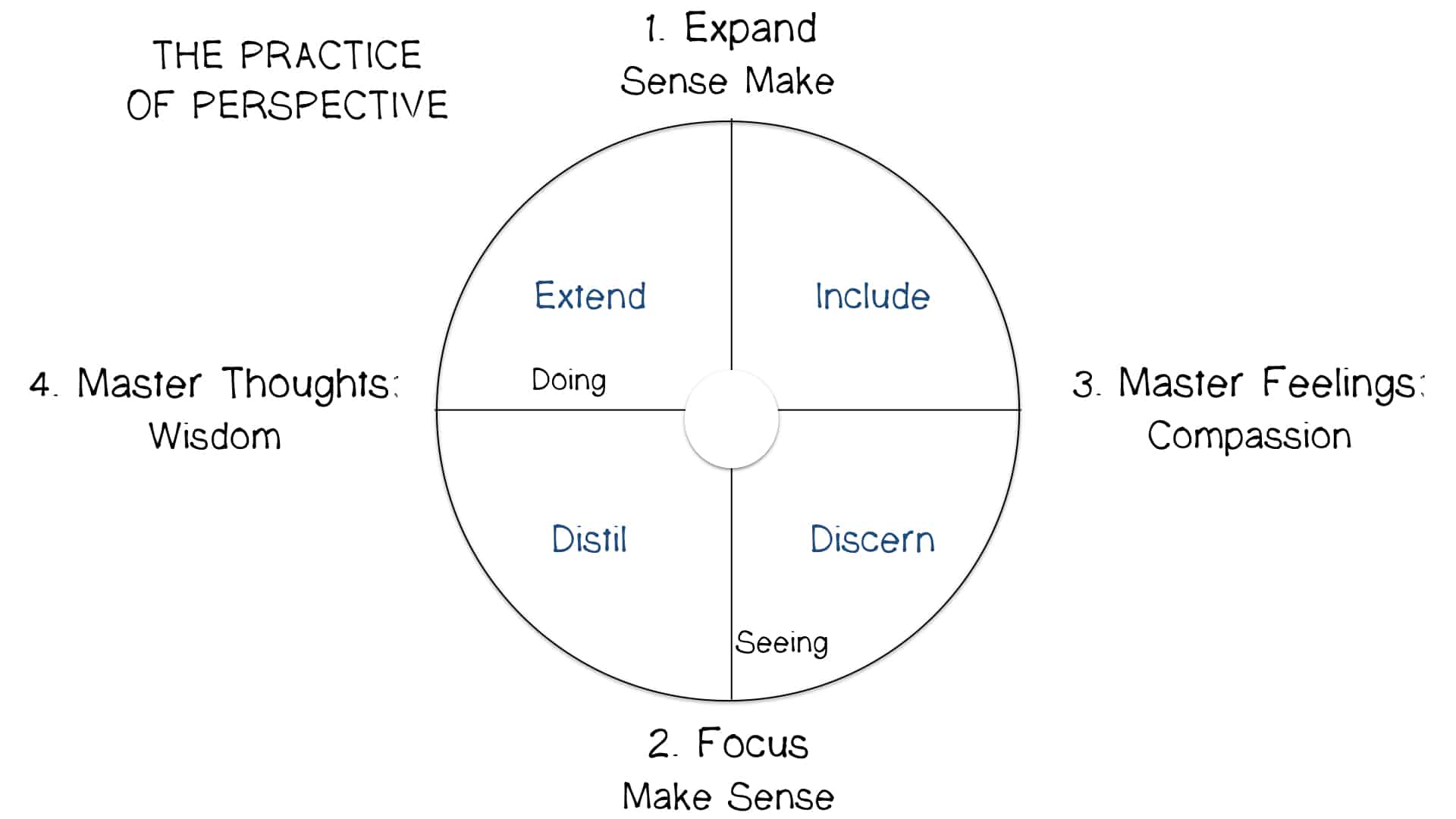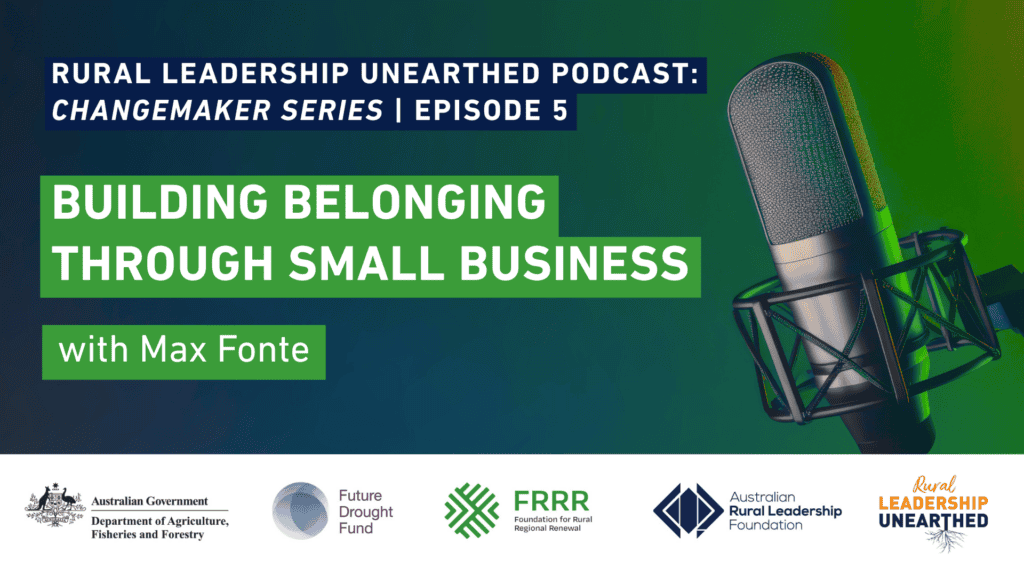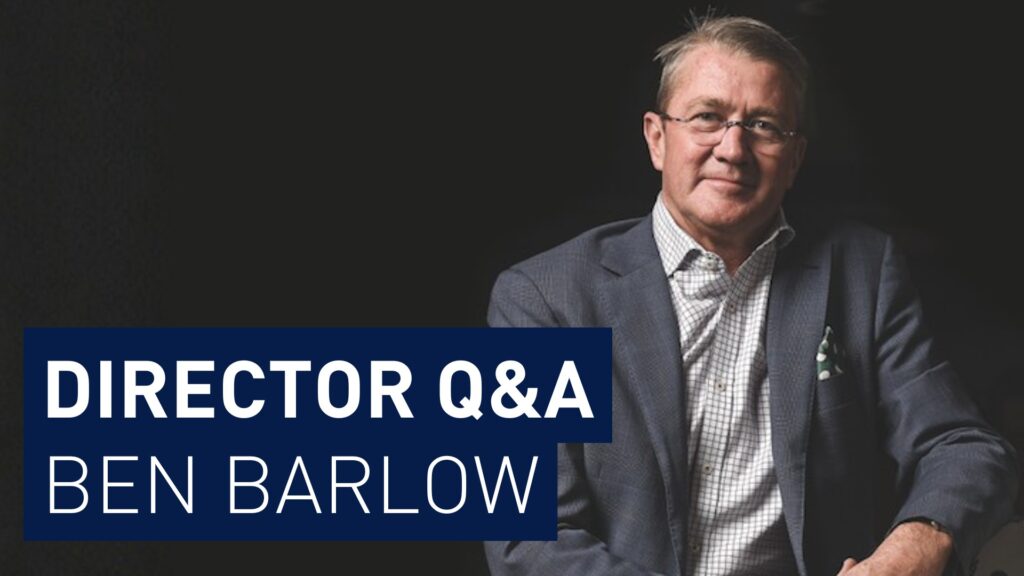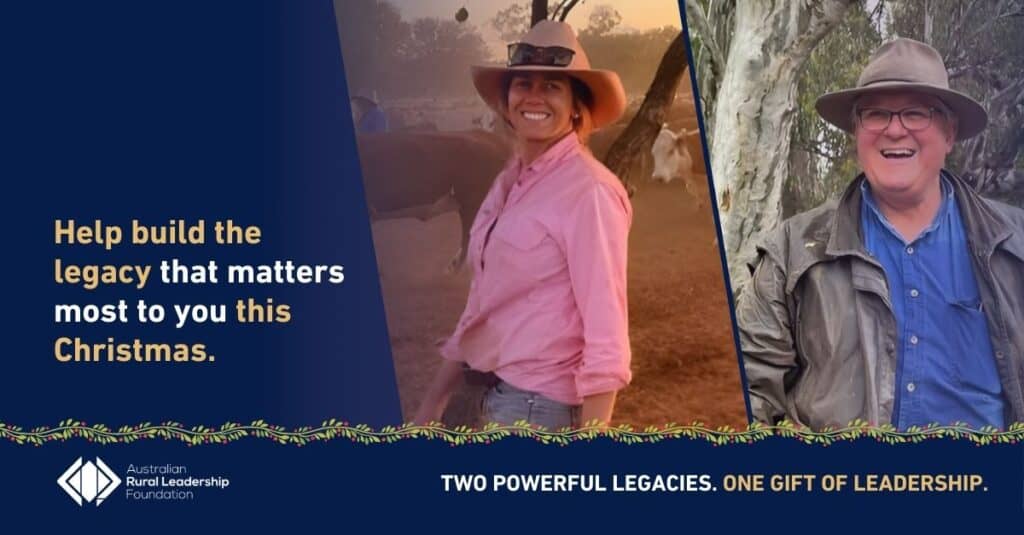I remember Barb Grey (ARLP 15) saying about her course experience, “If you told me a year ago that as a cotton farmer I would become best buddies with an environmentalist from Victoria I would have said you were crazy! The ARLP totally changed my point of view.”
When I was Program Manager, and before that Short Course Manager, at the Foundation, we focused on developing experiences that helped participants expand their perspective. The case study was always a great opportunity for that: to hear from a variety of stakeholders on a complex issue. From speaker to speaker, people’s opinions would spin from one angle to another.
As a lifelong leadership educator, I have come to realise:
When we change the way we look at things, the things we look at don’t change, WE do.
I know Barb would say she became a more curious and open-minded human as a result of her interactions on the program. Diversity in the participant cohort, and diversity of experiences, is one of the magic aspects of the Foundation programs.
Exposure to different people and places does not automatically make us more wise, nor more compassionate.
Perspective is something we need to practice. In my new book, People Stuff: Beyond personality problems – an advanced handbook for leadership, I take readers on a journey to hone their perspective skills. We look at how we see ourselves, others, and the bigger picture.
The first step is to EXPAND our point of view as far and as wide as possible. This means considering many generations in the past as well as into the future. It means examining complexity through environmental scanning and systems mapping. We are sense making in this stage.
The next step is to FOCUS. We need to make sense of what we’ve mapped and uncovered. We can do this through scenario planning, problem trees, and challenging assumptions.
Of course, seeing is one thing; doing is quite another. As leaders, we need to take action. The next critical component in the practice of perspective is to make wise and compassionate decisions. We need to master two things: THOUGHTS and FEELINGS. When we apply wisdom to sense making, we ask questions. We question the questions we are asking, we look at the patterns we are seeing, we question the diversity in the points of view considered, and we interrogate our lived experience and that of others.
Ultimately we want to temper our decisions with compassion. We want to make sensitive as well as sensible decisions. Our compassion skills include consideration of the far-ranging impact of our choices, even for those we will never meet. We want to uplift humanity, not bring out its worst. We want to be kind in our choices. Where the decisions are hard, we want to deliver them with kindness and care.
Ultimately, as responsible and ethical leaders, we want to be able to
See more to lead better.
***
Zoë Routh is a leadership expert, author, speaker and facilitator. She is past Program Manager at the Australian Rural Leadership Foundation, lover of dark chocolate, and mother to one geriatric garden-wrecking chook. https://www.zoerouth.com/peoplestuff-book





